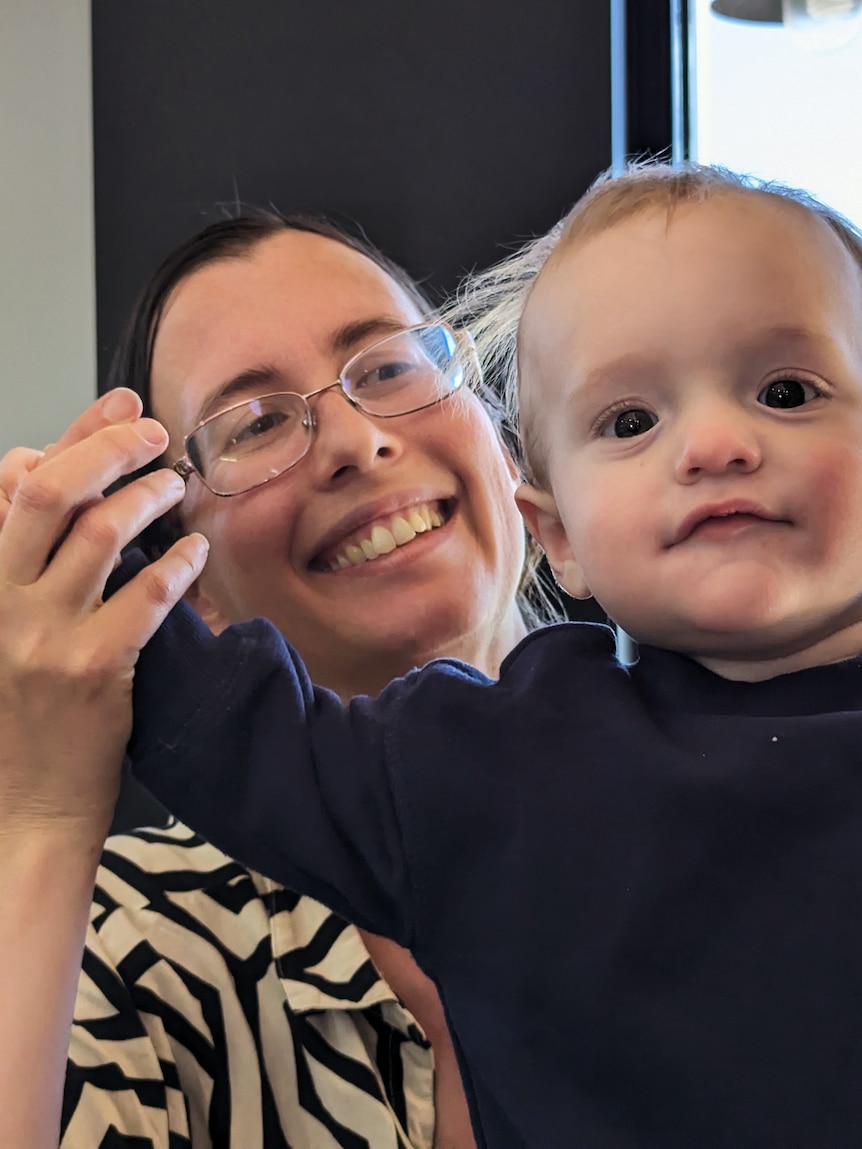Babies are cooing, a guitar is tuned, and parents are handed a small pamphlet with a list of prompts to help them create a unique song.
The Lullaby Project has come to the Riverland in South Australia, helping parents and caregivers create music they will be able to treasure forever.
Gretel Jericho first heard about The Lullaby Project through her sister, who produced two lullabies during the workshops.
“It was such a beautiful, moving experience for her and I could hear her connection to the children in her life through the songs,” she said.
“I wanted that, so when I heard the Lullaby Project was coming here I thought, yes, I’ve got to do this.”
Gretel found a real connection with a song distilled from her own experiences, thoughts and concerns.
“[The classic] nursery rhymes are lovely but it is just so nice to have something which is just ours and not generic,” she said.
Ripples of meaning
Musician and lullaby artist Jodie O’Regan has run five projects across South Australia and found there are layers to each lullaby.
“A lullaby is a small song but then there are concentric circles,” she said.
“The smallest definition of a lullaby is a gentle, soothing song for a baby to help them sleep.
“From there it becomes a love song of any description to a baby or child.
“But then from there we have written lullabies which celebrate pets or whole communities rather than a single child.”
Assisting others on their journey brings Jodie great joy, especially when she sees participants complete their final product.
“There’s a special smile participants have when you nail it, when you’ve got the chords, the music and the words representing what they want to say,” she said.
“Creating music can be a changing experience, and it may be something which some participants have never done before in their lives.
“At the end of the process you end up with a piece of concrete evidence that you can write or co-create a piece of music.”
Singing for connection
Clinical child psychologist and senior lecturer with Western Sydney University Fran Doyle said music was an integral part of the human experience and connection.
“People have been communicating with songs and nursery rhymes for generations,” she said.
“Music gives us ways to communicate, engage and share stories with each other.
“It has a social role and when parents share music with children it helps with developing their language, communication skills as well as emotional regulation.”
She said our connection with music began from a very young age.
“Researchers have found exposure to music might strengthen some of the connections in the brain and from a very early age we respond to music,” she said.
“You might have heard of parents playing music to their kids when they’re still in the womb.
“Music is something we innately respond to.”
Back in the Riverland, Gretel said when the pamphlet prompted her what to consider what she was writing about, she settled on her son’s future.
“So I wrote this thinking about what I’m seeing, what the next steps are and what I’m looking for in his future,” she said.
“My husband and I have had so many conversations about all that kind of stuff and I saw this as an opportunity to capture that in a song which will forever be ours.”
Get our local newsletter, delivered free each Tuesday




